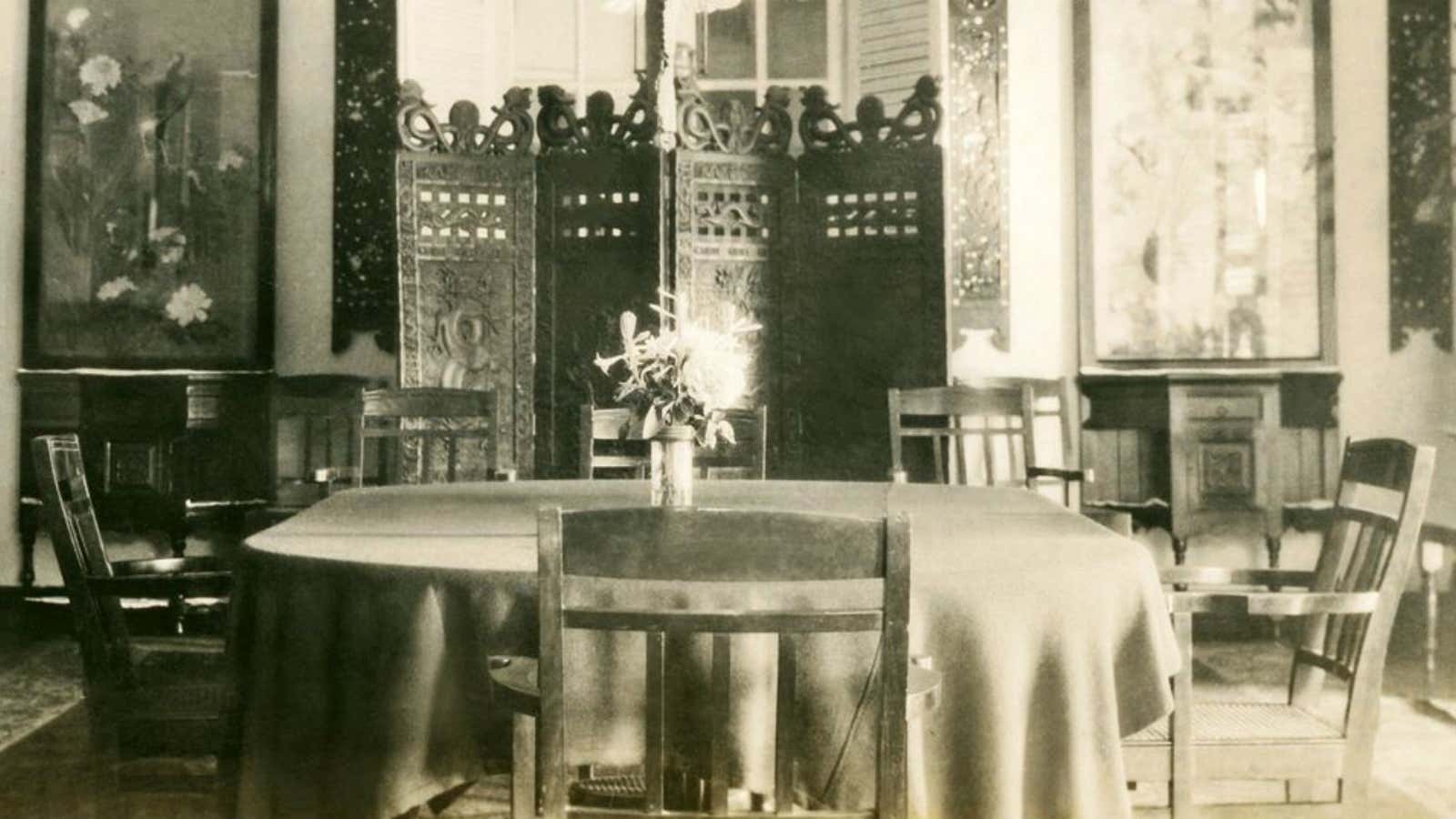On Mumbai’s Waudby Road stands the grand Esplanade House, a mansion built in the 1880s by Jamsetji Nusserwanji Tata, industrialist and founder of the Tata Group. The Esplanade House served as a home to the Tata family until the 1930s.
Conservation architect Vikas Dilawari describes the building as “one of the finest residential buildings architecturally and historically, representing the neo-classical style of the 19th century with its columns, pilasters and quoins, and an intriguing baroque façade.”
Esplanade House has oil paintings on the ceiling, and gilded cast iron, ivory inlays, and stone-work on its outer façade.
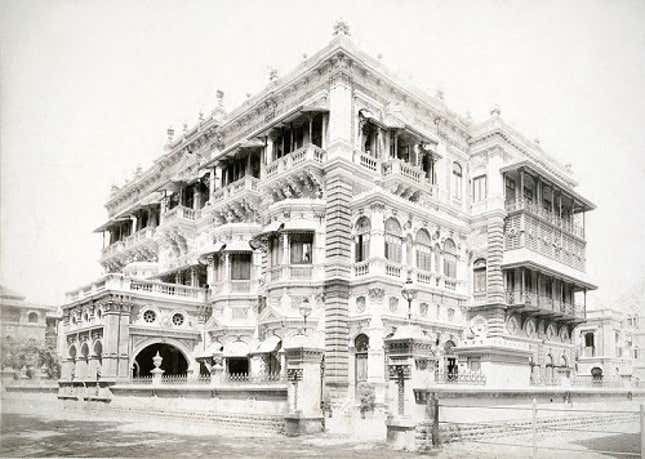
Over the past 130 years, the structure lost some of its glory. But, in 2014, it was restored to its former grandeur after 10 years of work, and was recognised by the UNESCO Asia Pacific Award (honorary mention) for Cultural Heritage Restoration.
The sepia-tinted photos of the Esplanade House from its glory days are currently on display in Pune as part of an exhibition by Tata Central Archives.
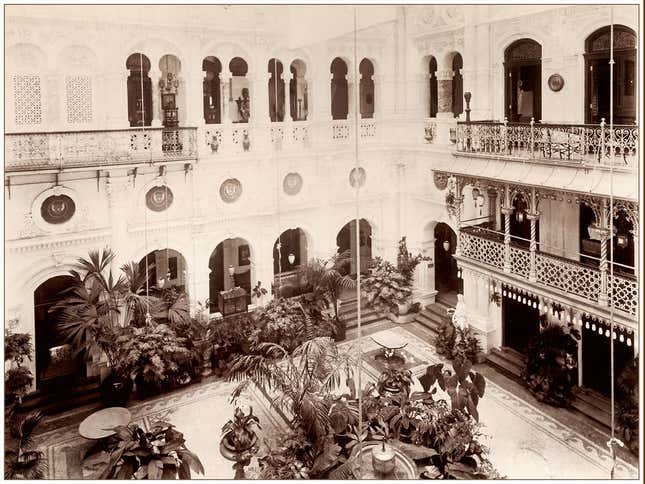
Covering the period between 1822 and 1965, the exhibition displays a collection of rare vintage photographs of properties owned, leased and rented by the Tata family. According to the Tata Central Archives, these properties are “iconic representations of the architecture of city skylines across the world.”
Some of the prints have been preserved in pristine condition, while others have suffered discolouration.
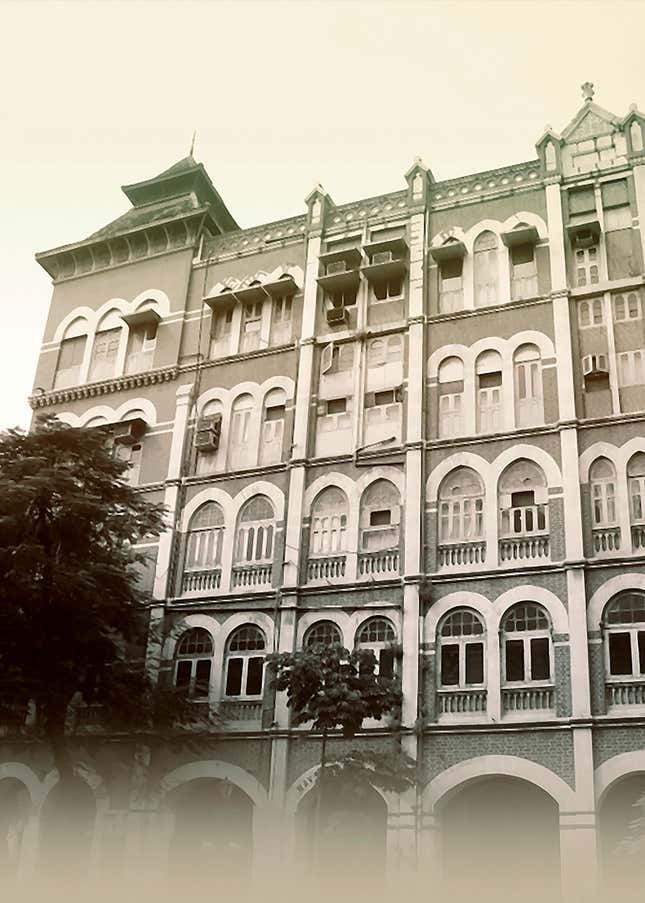
Some of the other iconic buildings on display at the exhibition are Mumbai’s Victoria Building, Bombay House, and the Ice House.
Jamsetji Tata bought the Ice House from an American company that worked in the preservation of fish, fruits, and meat. It was later sold by Jamsetji’s son Dorabji Tata and now houses the KR Cama Oriental Institute.
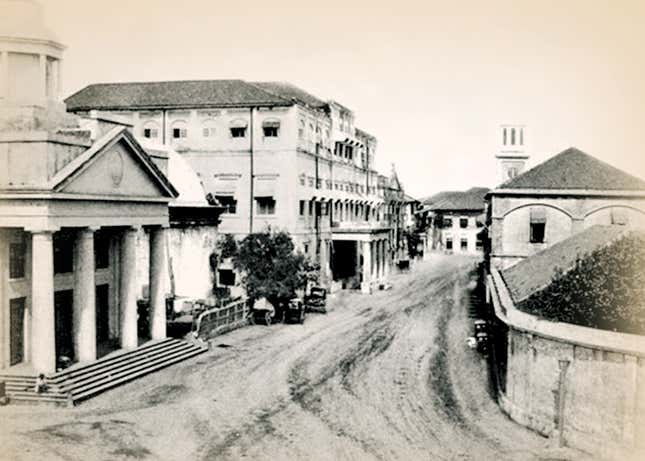
These images remind one of a Mumbai (then Bombay) that is preserved only in reel and memory–wide, tree-lined roads devoid of soot and traffic, and open skies.
According to Farokh N Subedar, chairman of Tata Services and CEO of Tata Sons, “This is a timeless collection of memories, landmarks and milestones that have stood the test of time and are reminiscent of the Tata family genesis in history.”
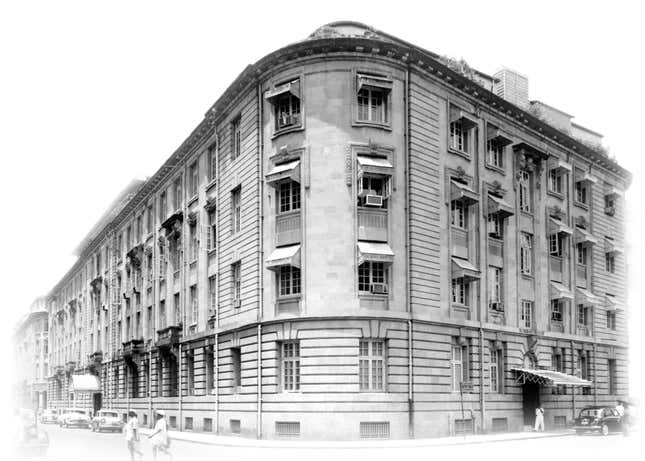
The Gladhurst Property in Pune, now known as “the Dutch Palace,” was once the Tatas’ summer home. Dorabji and his wife, Lady Meherbai, along with members of their family, would often visit this palatial retreat with its rich interiors and manicured gardens for respite from Bombay’s heat.
Back then, the grounds also housed a statue of Jamsetji Tata.
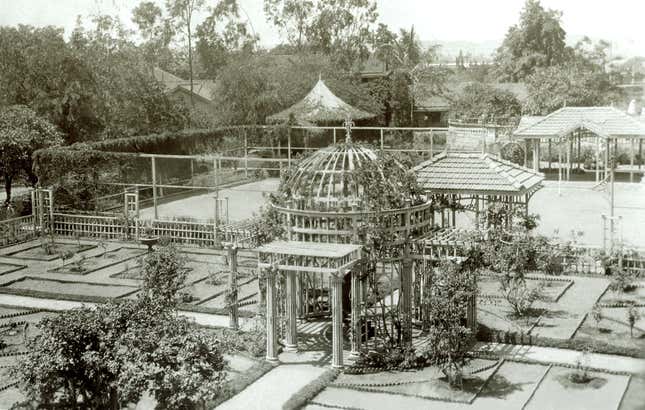
Tata’s real estate footprint extends beyond India, as the family owned numerous properties in England and France. The building that currently serves as the Town Hall of the London Borough of Richmond upon Thames was once a setting for garden parties thrown by the younger son of Jamsetji, Ratanji Tata, who purchased the mansion from the Duc d’Orleans in 1906 for £16,000.
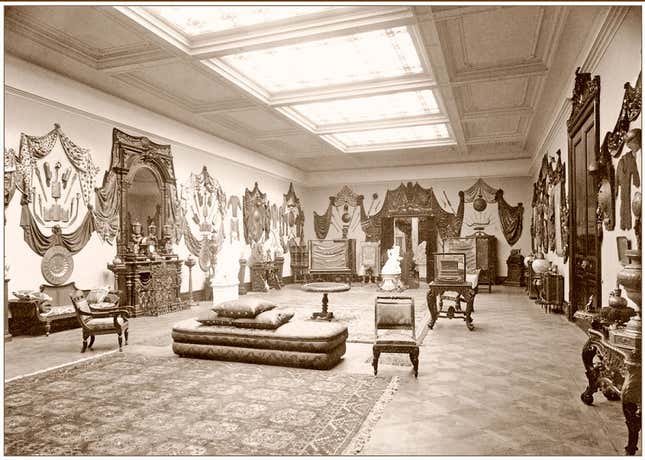
This post first appeared on Scroll.in. We welcome your comments at ideas.india@qz.com.
